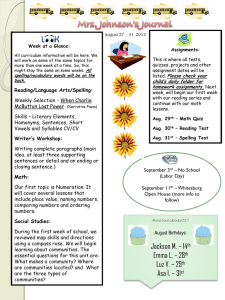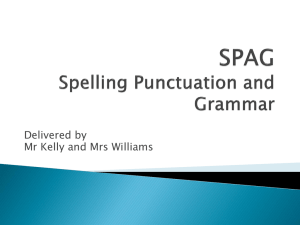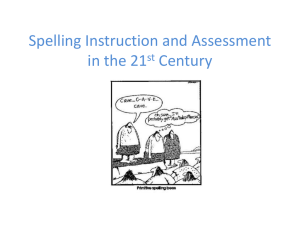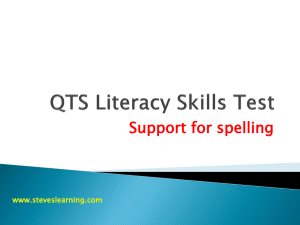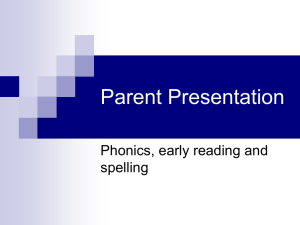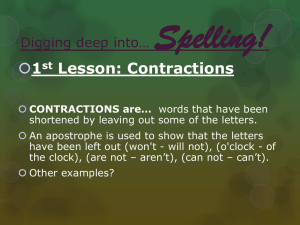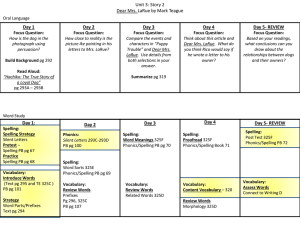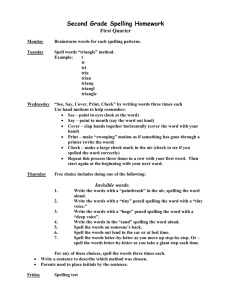Spelling Workshop
advertisement
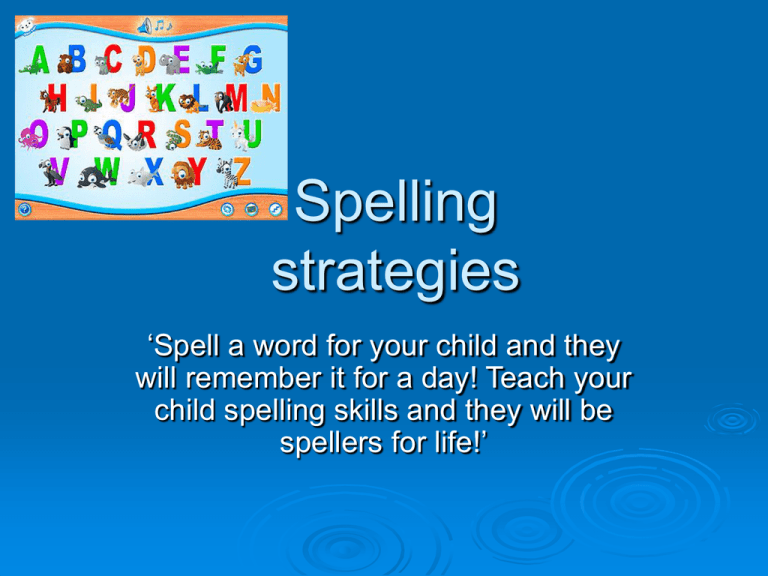
Spelling strategies ‘Spell a word for your child and they will remember it for a day! Teach your child spelling skills and they will be spellers for life!’ Aims of this session To provide an overview of how we teach spelling in Oakgrove IPS. To provide practical ideas which you can use at home to develop your child’s spelling skills. To further develop home school links Is your child ready to spell? Can he/she …. Recognise rhyme (importance of Nursery Rhymes). Recognise letter sound symbols (alphabet recognition). Identify individual sounds within a word. Follow sequences and blend sounds together. Hear sound blocks in words (syllables). Hear sounds and record them (visual memory of letter symbols) Manipulate sounds (instead of ‘pit’ spell ‘bit’) Teaching spelling in Oakgrove P1 & P2: Develop language, rhyme, letter sounds and sound blocks. P2 : Introduce Linguistic Phonics. P3- P7 : Linguistic phonics (10 minutes daily) The Complete Spelling Programme (homework spellings + class activities) Nelson literacy programme . What is Linguistic Phonics? A carefully planned approach to learning spelling. A daily ‘blast’ linking spelling skills to language, listening, reading and writing. Children within each year group are exposed to a variety of spelling patterns over the year. These spelling patterns are revisited in each year group. Spelling activitiesHow to help your child! Look, say, cover, write, check method. Paper squares / phonix cubes Mnemonics (visual and rhyming clues). Visual skills;. Tracking, word shapes, Spellmadoodle See it right activity (‘Have a go’ spelling book / page) Climb a mountain Over to you! Any questions! Remember: Praise for all good efforts. Don’t let your child struggle too much. Help out and then let the teacher know what you did. Try not to let him / her feel that he has let you down. Use humour to diffuse any tension. Thank you for your time. We really appreciate your support!
